Publications
Articles, publications, books, tools and multimedia features from the U.S. Institute of Peace provide the latest news, analysis, research findings, practitioner guides and reports, all related to the conflict zones and issues that are at the center of the Institute’s work to prevent and reduce violent conflict.
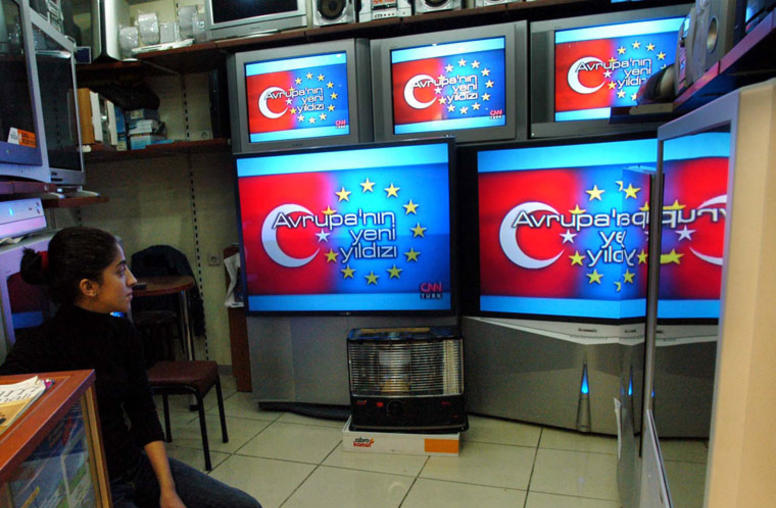
Stall in Turkey’s EU Accession Talks Calls for Alternative Approach
German Chancellor Angela Merkel’s visit to Ankara isn’t likely to significantly speed talks over Turkey’s accession to the European Union. But there might be an alternative to produce some movement in the meantime.
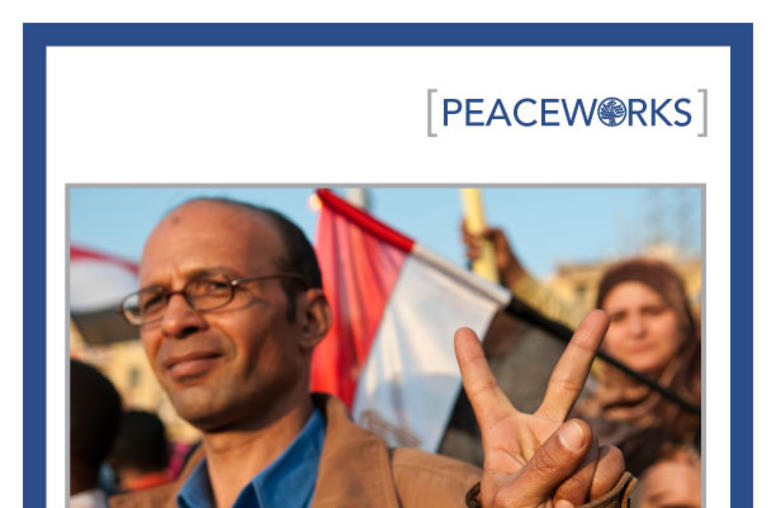
Democratic Breakthroughs: The Ingredients of Successful Revolts
Although each revolution is different, each successful case of democratic breakthrough shares common domestic and international influences. This report examines 11 cases of past successes at removing autocratic regimes and establishing elections. It then applies its findings to the emerging revolutions of the Arab Spring.
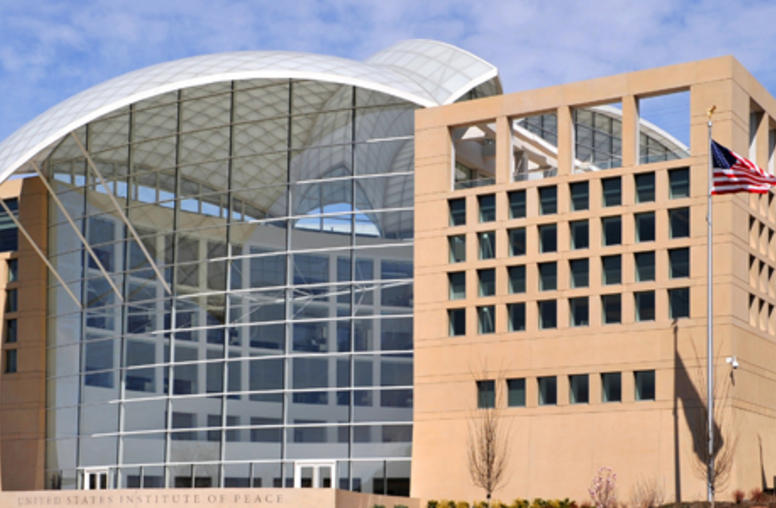
Fellow Robin Wright Recognized by the Overseas Press Club
On April 25, Robin Wright, noted author, journalist, and joint USIP-Woodrow Wilson Center fellow, was recognized by the Overseas Press Club (OPC) for her recent book Rock the Casbah: Rage and Rebellion Across the Middle East. Wright received the OPC’s Cornelius Ryan Award, which recognizes the best non-fiction book on international affairs.
Examining the Prospects for Iran Nuclear Talks
Talks between Iran and a group known as the P5 plus 1 (the five United Nations Security Council permanent members plus Germany) on Iran’s nuclear programs are expected to begin on April 14 in Istanbul, Turkey. The resumption of negotiations might represent an important juncture in the long saga of international efforts to restrain and verify the nature of Iran’s nuclear efforts, which Tehran contends is intended to develop energy sources and conduct research but which the United States and ot...
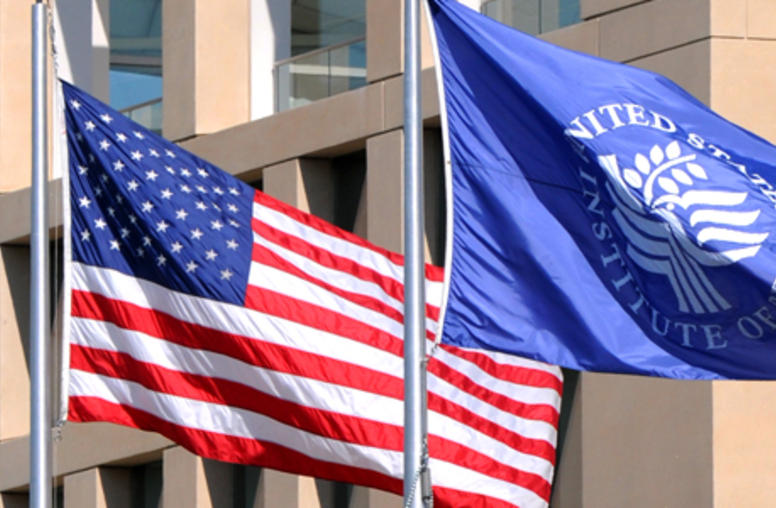
The Big Picture on Europe’s Travails
As part of USIP’s ongoing series about the U.S. role in the world, Judy Ansley, a member of USIP’s board and former deputy national security adviser discusses the economic crises in Europe, the changing relationship between the U.S. and Europe, and the contributions the Institute can and does make during this time of tremendous challenge and opportunity.
Arab League Strives for Relevance on Syria but Faces Test
USIP's Steven Heydemann looks at Syria and the impact the Arab League can have on the Assad regime.
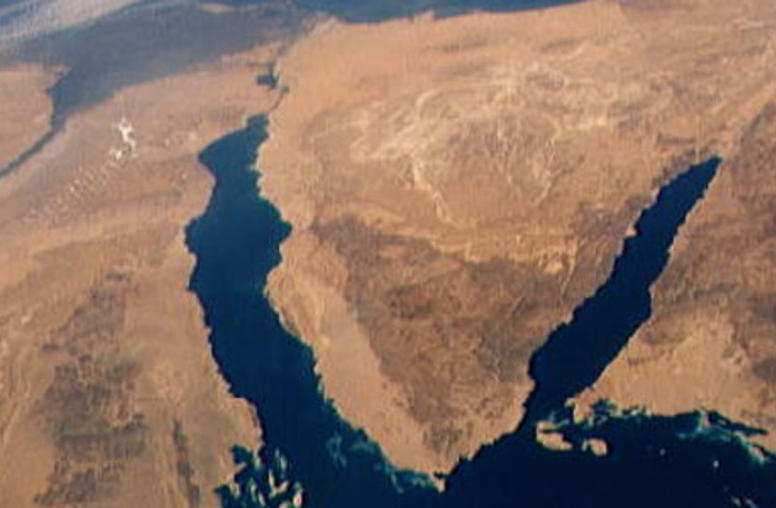
Through a Glass Darkly? The Middle East in 2012
In a period of tremendous change in parts of the world, we are asking USIP leaders, from board members to senior staff and experts, to explain the effects that events abroad and here at home will have on the United States, and the contributions the Institute can and does make. Steven Heydemann is USIP’s senior adviser for Middle East Initiatives.
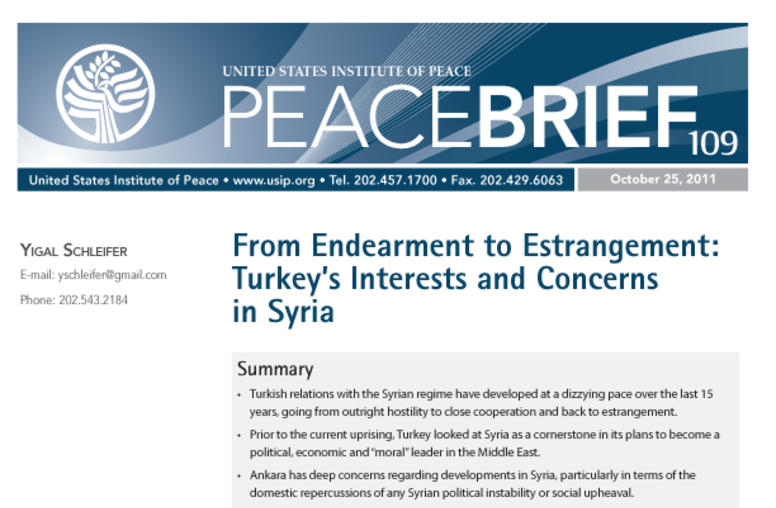
From Endearment to Estrangement: Turkey’s Interests and Concerns in Syria
This brief is part of a series examining the regional dimensions of Syria’s popular uprising. The Institute invited leading experts from the U.S. and the Middle East to identify key vectors of influence Syria’s neighbors are bringing to bear on the conflict, to forecast how the situation there will affect the regional balance of power and to examine how the opposition and the Syria regime are responding to these regional dynamics. This study on Turkey was written by Yigal Schleifer, a Washing...
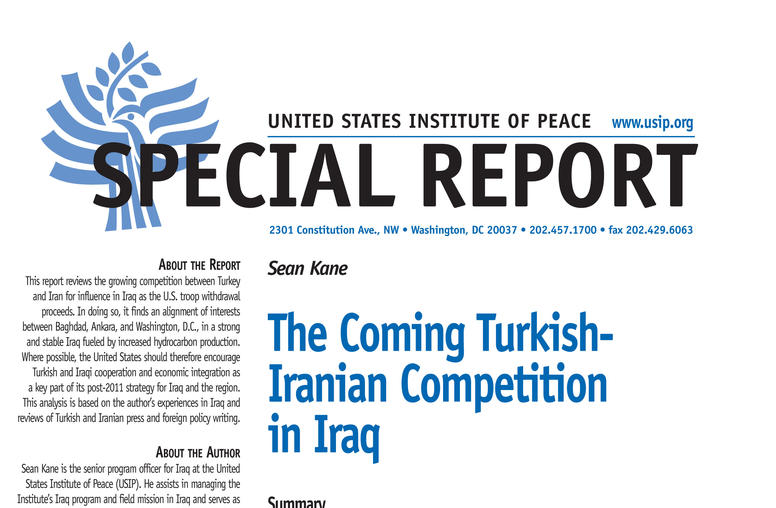
The Coming Turkish-Iranian Competition In Iraq
This report reviews the growing competition between Turkey and Iran for influence in Iraq as the U.S. troop withdrawal proceeds. In doing so, it finds an alignment of interests between Baghdad, Ankara, and Washington, D.C., in a strong and stable Iraq fueled by increased hydrocarbon production. Where possible, the United States should therefore encourage Turkish and Iraqi cooperation and economic integration as a key part of its post-2011 strategy for Iraq and the region. This analysis is bas...
On the Issues: Iran and P5+1 Talks
USIP expert Dan Brumberg previews the upcoming talks with Iran and provides background on the current situation.